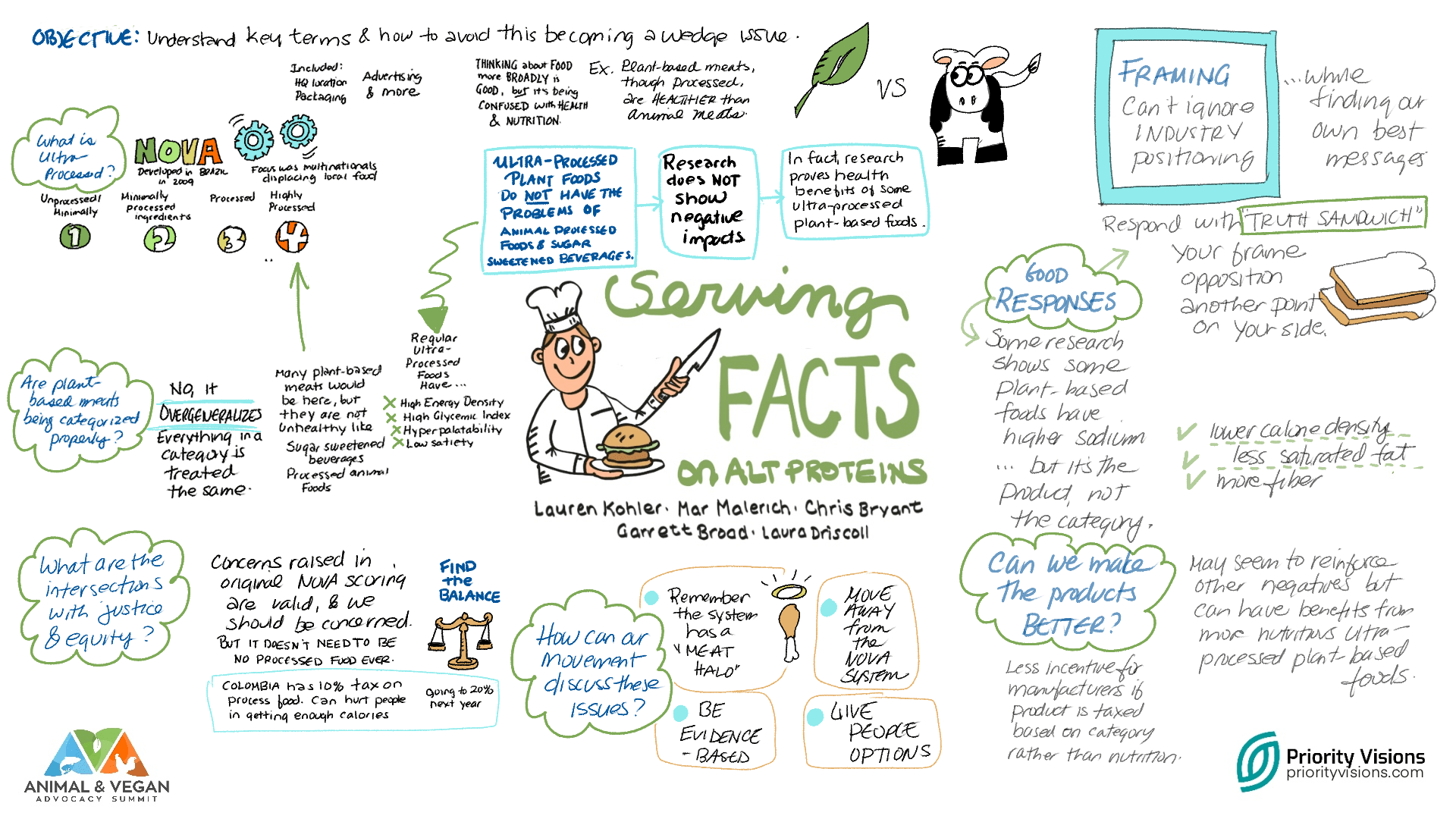This is a thread for a continued dialogue that began during the AVA Summit DC in Washington, DC, from May 16-19, 2024.
The term “ultra-processed foods” has increasingly been associated with alternative proteins, raising questions and tensions around alt proteins within the animal and vegan advocacy movement and the general public.
Panelists traced the development of ultra-processing as a framework, unpacked and fact-checked common narratives surrounding UPFs and alt proteins. They highlighted implications for the animal and vegan advocacy movement.
The session highlighted several important insights. The NOVA classification system, which categorizes foods by their processing levels, often oversimplifies by lumping all processed foods together. This can obscure the fact that many plant-based processed foods are healthier than their animal-based counterparts. Research supports the health benefits of some ultra-processed plant-based foods, countering the narrative that all processed foods are detrimental.
Effective communication is crucial. Using balanced messaging, such as the "truth sandwich" technique, helps counter industry narratives by emphasizing the benefits of plant-based options like lower calorie density and higher fiber content. The session also addressed equity concerns, noting that while processed food taxes can impact food access, not all processed foods should be demonized. Instead, the focus should be on improving their nutritional quality.
An evidence-based approach is essential. Moving away from rigid systems like NOVA, the goal should be to provide better, healthier choices by enhancing the nutritional content of plant-based foods. Overall, the session underscored the need for a nuanced, informed approach to discussing and promoting alternative proteins.
Speakers:
- Mar Malerich, Rooted Research Collective, Co-founder
- Chris Bryant, Bryant Research, Director
- Garrett Broad, Rowan
Talented visual artist and infographic creator Caryn Ginsberg of Priority Visions carefully visualized this session from start to finish, highlighting key points and takeaways.
Let's use this space to keep the conversation going.





Thank you, Amie and Caryn, for this great summary of the discussion! Stray Dog Institute is so grateful to have had the privilege of bringing this topic to the AVA mainstage with such incredible panelists!
You are so welcome! Thank you very much for being there with us during AVA DC 2024.